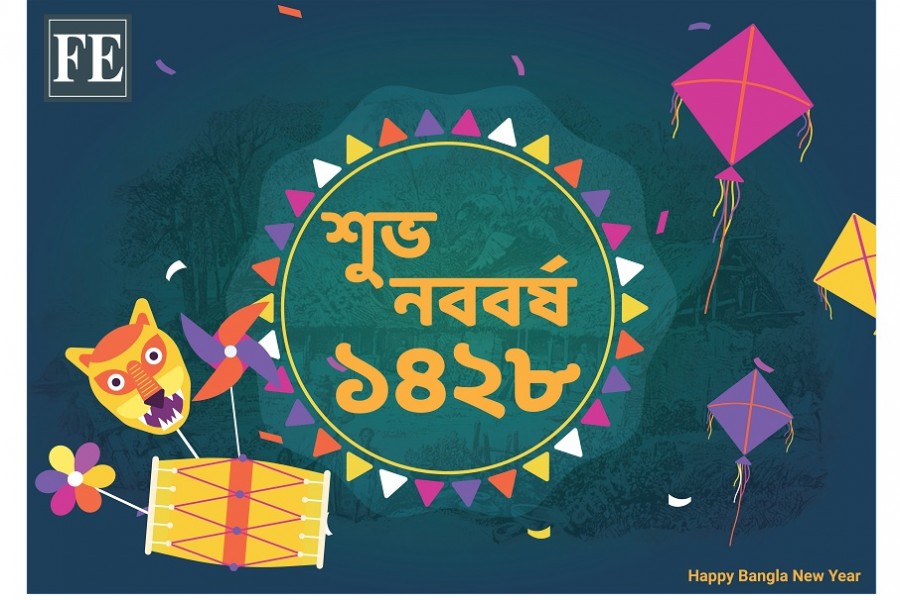
Published :
Updated :

Bangladeshis are celebrating the first day of Bangla New Year 1428, Pahela Baishakh, on Wednesday without the usual colourful programmes held in different parts of the country.
Reputed for its celebration, the Pahela Baishakh cannot be celebrated with outdoor programmes amid the coronavirus pandemic that hit Bangladesh in March 2020.
This situation has caused enormous losses to traders and artisans who usually make good business before and during the Baishakh celebration.
It is the first day of the first month (Baishakh) of Bangla year, when Bangla-speaking people in Bangladesh elsewhere bid farewell to the old year and welcome the ne one.
People wear traditional dresses. Young women wear white sarees with red borders and adorn themselves with bangles, flowers, and tips, while men wear white pyjamas and panjabi or kurta.
Dhaka city dwellers earlier joined the celebrations at Ramna Park, Suhrawardy Uddyan, Dhaka University campus, Rabindra Saroborin Dhanmondi and some other amusement places. They used to take ‘pantabhat’ (soaked rice), green chilli, onion and fried fish
All over the country, people joined celebrations especially Baishakh fairs.
However, this year, the Pahela Baishakh marks the first day of a weeklong stricter restriction enforced by the government stem an alarming spread of the deadly coronavirus.
Also the same day, the holy month of Ramadan or fasting begins.
BSS reports, though the Dhaka University Fine Arts Faculty has completed all preparations for the main attraction of the Bangla New Year- Mongol Shovajatra like the previous years, the traditional colorful procession will not be brought out this year.
Only 100 people would join a symbolic Mongol Shovajatra on the faculty premises.
Besides, following the government directives, the Pahela Baishakh will be celebrated through virtual media.
The state-run Bangladesh Television (BTV) will broadcast the New Year programme.
Business communities, especially in the rural areas, generally open their traditional ‘Halkhata’, new account books on that day while traders also offer sweets to customers.
The day is a public holiday.
Some historians attribute the Bengali calendar to the 7th century king Shashanka, which was later modified by Mughal emperor Akbar for the purpose of tax collection.
During the Mughal rule, land taxes were collected from Bengali people according to the Islamic Hijri calendar. This calendar was a lunar calendar, and its new year did not coincide with the solar agricultural cycles.
Akbar asked the royal astronomer Fathullah Shirazi to create a new calendar by combining the lunar Islamic calendar and solar Hindu calendar already in use, and this was known as Fasholishan (harvest calendar).


 For all latest news, follow The Financial Express Google News channel.
For all latest news, follow The Financial Express Google News channel.